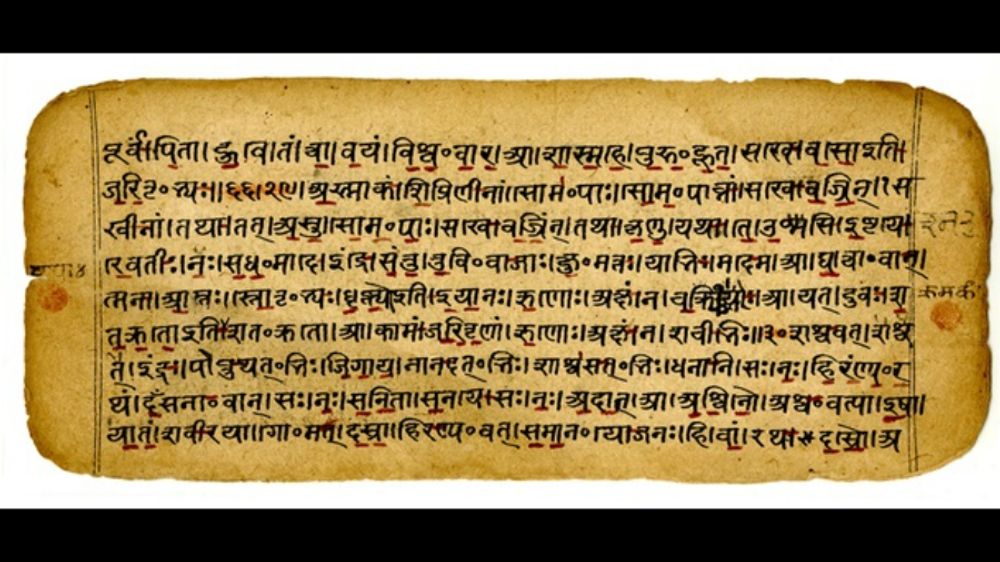

Introduction
The Vedanta Philosophy is the one of the finest philosophies developed in India. Its source is the Vedas which are one of the world’s first scriptures, the earliest written form of the Vedas being as old as 1500BCE which were earlier being transferred orally, since thousands of years, among the minds and hearts of the dvijas. The Vedanta constitutes the end portions of the Vedas and hence the etymology Ved-Vedas and anta-end (portions).

What is the purpose of Vedanta Philosophy?
Is there any deeper purpose of Vedanta Philosophy? Or is it, just like the Western Philosophy, helps to understand world in a better way, improves our mental and intellectual capabilities and encourages us to think? A Vedantin would agree that the above improvements would be found in a person trying to understand this philosophy but to say that it is the complete purpose of it is not true. The Vedanta Philosophy makes an exemplary claim that it can remove all the sufferings of an individual and give that person an unending state of inherent and permanent bliss, in this very life, due to the clear understanding of the Truth. It is for this reason that this philosophy, in spite of being highly intangible, has survived for thousands of years and no one in the history of mankind has ever claimed that he found no change in his character after making a breakthrough based on this philosophy. But can a particular set of knowledge be so useful that it can remove all sufferings? Why other set of knowledge does not qualify? The answer to this is that the other set of knowledge, which has not given such results, perhaps does not talk of the Truth and even if it does, it does not involve individuality and even if it does, it does not encourage one to make a breakthrough by contemplating on the philosophy. If it satisfies all these criteria, it would surely have a set of enlightened beings who would represent that particular philosophy, be it the Vedanta or any other. One such example is Buddhism. The philosophy of Buddhism is much similar to Vedanta but in some respects they seem to stand contrary to one another but they both have a set of enlightened beings. The part where they seem to stand contrary is the noumenon wherein the Vedanta talks of it and give descriptions of the same but Buddhism maintains a silence on it.
What is the Truth?
What is this Truth which is being spoken of previously? Vedanta says this Truth is no other than our very own Self. This is where the Vedanta plays with philosophy and spirituality. If it was all about understanding nature and objective realities or even making the theories on mind and ideas, it would not qualify as a part of spirituality. But Vedanta not only talks of the pure Subject but encourages to keep enquiring about the true Self as a part of meditation. Thus, for Vedanta, philosophy is secondary; the most important and productive work a man can do is to enquire about its own true Self. Adi Shankaracharya, one of the greatest propounders of this philosophy said that listening to this philosophy is good but reflecting upon it is hundred times better and meditating upon it is hundreds of thousand times better than reflecting. But what is true Self? Do we not know who we are? Have we mistaken our true Self with something else? The answer to both the questions, according to Vedanta, is in affirmative. The most obvious assumption any human (or all living beings for that matter) makes with his identification is that he or she is the body. This identification is so natural and intrinsic that one never questions it. Some say that they identify themselves with the personality constituted in their mind. But what are we according to Vedanta? Vedanta would declare that you are not the body and mind but the Witness of body and mind.

How am I the Witness?
Vedanta uses a very useful method called Drig-Drishya-Viveka (Discrimination of seer and seen) to understand how we are the Witness and not the body-mind complex. It asks a very elegant yet striking question- Why do you think you are not a table or a chair? Well, as everyone knows, since these objects are different of us, they are not us. Notice that you assume table and chair as objects. Why don’t you consider your own body as an object? Your body is also subject to change- it is created (in the womb) undergoes constant change and finally decays. But there is “something” which never changes and never decays. That “thing” is the Witness of the changes in the body. You experience the modifications in the body yet you are untouched by it. Similarly, you observe your mind thinking, analyzing, understanding- the mind may take a thousand manifestations but You the Awareness, the Consciousness, the Witness remain as it is, watching, as it were, in silence. All the judgments, suggestions, ideas, thoughts, actions, intentions and the fruit of these are neither you nor yours. You are free from all the consequences. This Witness could be reasoned out to be the ultimate Subject for this, unlike the body-mind and the world, can never be objectified. This is You, the Atman. The world, including your body and mind are mere objects of awareness for You the Awareness itself. Just like the clouds come under the sky, remains there and move away and new set of clouds come in, You also see this world and this body, your relatives, friends and family, your possession etc. and when the time has come, you get other body and other worlds to witness. You never change. You never move. You remain absolute witnessing the relative. This is how the Self is to be contemplated upon.
With continuous contemplation on the Self, with purified mind, and a sense of complete abnegation for the world, one finally realizes this Truth and becomes “fixed” in it. This is considered as the highest form of meditation. When one achieves the breakthrough, he can never move away from it. The world can now never delude him. He realizes that he was never in bondage. He has always been the Consciousness.
This, says the Vedanta, is the final goal of all human being.
There are many depths to this philosophy and many other ways to describe. Follow my articles to know more on Philosophy and Spirituality.


